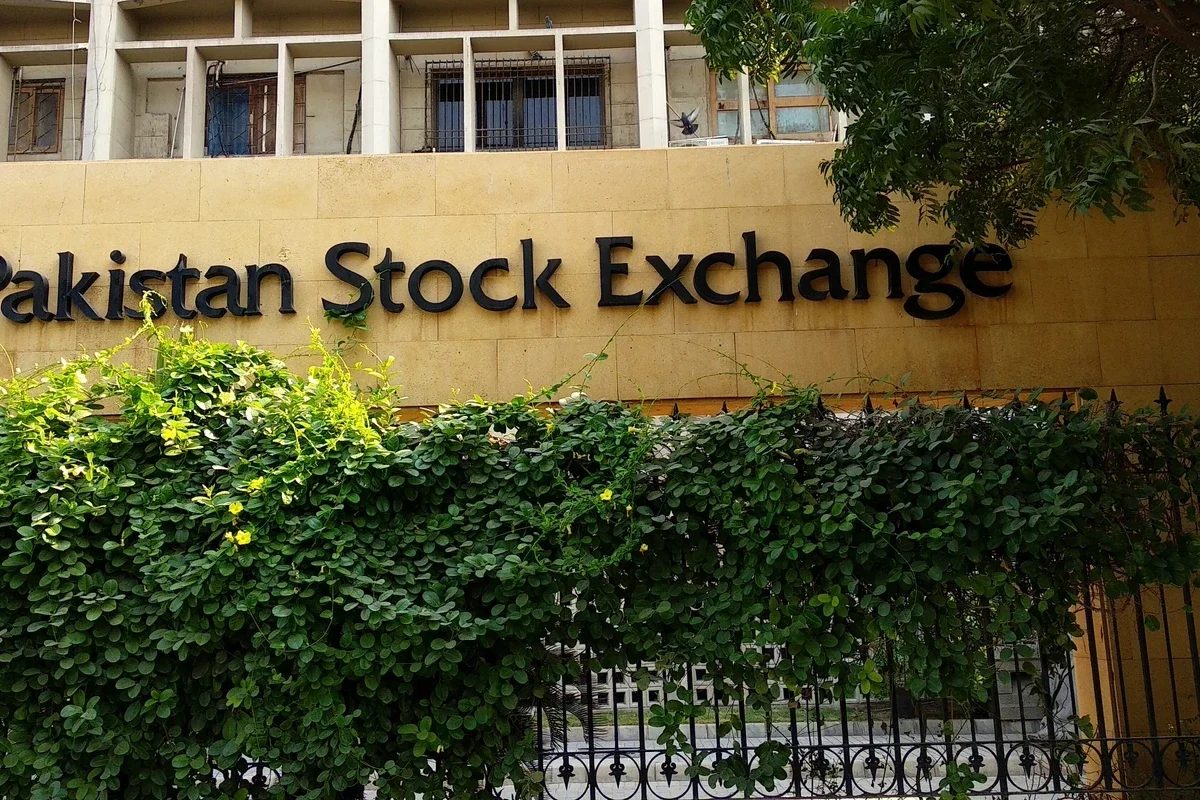Geopolitical tensions likely to keep Pakistan stock market range-bound next week
As the KSE-100 falls 1.7% amid Israel-Iran conflict, market eyes global de-escalation and earnings season for potential rebound

Haris Zamir
Business Editor
Experience of almost 33 years where started the journey of financial journalism from Business Recorder in 1992. From 2006 onwards attached with Television Media worked at Sun Tv, Dawn Tv, Geo Tv and Dunya Tv. During the period also worked as a stringer for Bloomberg for seven years and Dow Jones for five years. Also wrote articles for several highly acclaimed periodicals like the Newsline, Pakistan Gulf Economist and Money Matters (The News publications)

The Pakistan Stock Exchange's (PSX) movement in the coming week would be dependent on the geopolitical situation since the Israel-Iran war has been weighing on sentiments.
While key indicators are strong, the market would need positive triggers to move upward.
The benchmark KSE-100 index closed at 120,023 points on Friday, depicting a decline of 2,120 points or 1.7% compared with the preceding week. The sectors that contributed negatively were power, which was down by 652 points, cement, down by 475 points, fertilizer, down by 193 points, pharmaceuticals, down by 144 points, and oil & exploration stocks, which were down by 144 points.
Selling from mutual funds amounted to $16 million and that from insurance companies around $2.9 million.
Ali Nawaz, CEO at Chase Securities, said the market is likely to remain range-bound in the near term, awaiting positive developments in the Middle East conflict.
Elevated oil prices remain a key concern, with potential implications for inflation and the external account.
Nawaz said that in this environment, investors are advised to focus on value opportunities and consider accumulating quality stocks on market dips.
Salman Ahmad, head of retail investing at Aba Ali Habib, said that the market remained volatile last week due to the geopolitical situation amid the Israel-Iran war, which increased prices of commodities, including crude oil.
The central bank's decision to maintain the status quo on the interest rate due to rising crude oil price and subsequent apprehensions that inflation would spike was a good decision under the current scenario, he added.
Moreover, reports in foreign newspapers that the United States would join Israel's war against Iran dented sentiments, he said. Ahmad, added however, that the clarification from US President Donald Trump that he would decide on US involvement in two weeks as well as the meeting between him and Pakistan Field Marshal Asim Munir helped sentiments turn slightly positive.
Ahmad said the market would see some recovery on expectations that western countries would work towards ending the Middle East conflict. If tensions eased, commodity prices, including those of crude oil, would decline. This, in turn, would convince the central bank to slash the interest rate.
Moreover, companies would start announcing financial results from July, and that coupled with the approval of the federal budget which was in line with expectations, would lead to fresh buying in stocks, the head of retail investing added.
An analyst from Spectrum Securities said that equities will continue to be impacted by the war as there appears to be no real progress in reaching a peace deal.
The escalation in war and direct engagement of US in the conflict may create more regional instability, he noted.
Next week, the market may experience jitters due to rollover of June futures contracts if international equities remain under pressure and there is no progress in peace talks with Iran, he said.
An analyst from Arif Habib Ltd. said that next week, market sentiment is expected to remain influenced by geopolitical cues, particularly developments in the Middle East where tensions remain high.
Investors will be closely monitoring any signals of de-escalation, which could act as a catalyst for a market rebound, he said.
An analyst from AKD Securities said that in the short term, market performance would be influenced by the ongoing regional conflict between Iran and Israel.
However, in the medium term, analyst expects market to remain positive, with the KSE-100 index anticipated to sustain its upward trajectory, with a target of 165,215 points by December.










Comments
See what people are discussing